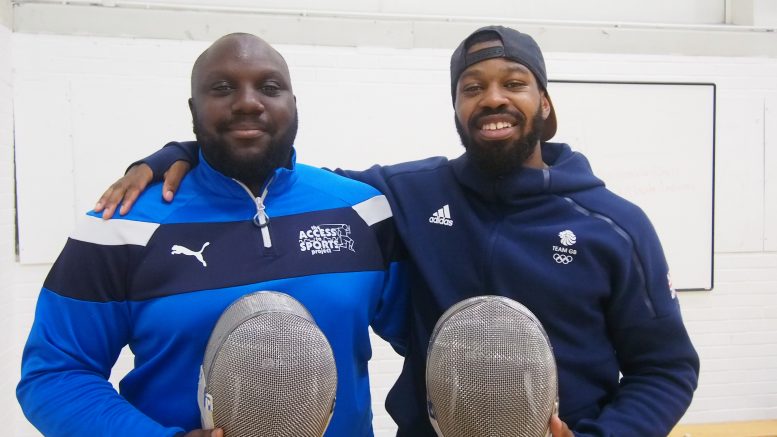Former Fencing champion Soji Aiyenuro has had to turn to coaching in a bid to earn the money he needs to compete in the sport after it had its funding cut in 2016. The 25-year-old, who lives in Belsize Park, Camden, once had his eyes set on Tokyo 2020, but has since laid down his sabre after being asked to train full time without any financial support. His situation raises an issue that many athletes have been questioning for a number of years. Why do certain athletes not receive the proper funding to fulfil their true potential simply because their profession is seen as a fringe sport?
Soji explained how, “After the last Olympics our funding got cut and they wanted us to train everyday full time without getting paid.” He shrugged his broad shoulders and forced a smile before he said, “I just couldn’t afford to do that for the next four years.” Soji now fuels his love of the sport by coaching full time at Camden Fencing Club, which is based out of Acland Burghley School in Tufnell Park. His dream of competing on the world stage has unfortunately been beaten by the financial burden that now shackles a number of sports.
Soji has been a keen advocate of removing traditional labels that have been put on various sports stating how, “I’ve been trying to get rid of that stigma since I first started fencing and fifteen years later it feels like we are still in the same position. There has been progression but it’s very small, there’s still so many kids who haven’t even heard of fencing and it’s still got that stigma of being a posh sport. Sometimes we go into schools and try to encourage kids, we make the sessions as fun and engaging as we can.”
Soji also explained how funding isn’t solely about giving an opportunity to young aspiring athletes like himself. He went into the effect it would have on some of the social and crime issues that seem to be taking over the country, “If you look from the grassroots perspective, there not many affordable activities for the youth right now, all the kids are into football and basketball but its good to expand their horizons and make them realise that there are other sports outside of the two or three that everyone in the UK normally does.” He added, “You would see a change in crime as well, the matter of the fact is that its getting kids off the street and giving young people something to do. With the big sports there might not be as much of an opportunity to reach a top level so lots of kids only do it for a couple years and then go right back to being on the streets.”
Speaking to Georgina Usher from the British Board of Fencing she expressed her concern for the current state of funding to the sport stating, “Unfortunately, like most NGBs I expect, we don’t have the income levels to replace the financial assistance that UK Sport provided to our best athletes in the Rio cycle. So we recognise and expect that the majority of our top fencers are busy juggling part (or even full) time work with training and competition.” Georgina also went on to say that, “BF continue to doing everything we can to try and raise money – regrettably successive public fundraising initiatives have resulted in declining interest and donations.
While British Fencing isn’t currently in the best financial climate British Fencing remains hopeful looking into the future, Georgina explained recent successes could lead to a change in Dynamic for many struggling athletes, “Of course we are hopeful now with Marcus Mepstead’s recent World Silver Medal, that’s 2 silvers in two world championships in two years, after a gap since 1956! Hopefully this will result in attracting additional financial support for him as he establishes himself as a genuine medal contender for Tokyo. We are lucky that we have the BF Charity who have been able to provide some financial support to some of our athletes competing in the World Cup team events including the men’s sabre team.”
There may still light at the end of the tunnel after all.
Words By: Max Stott

